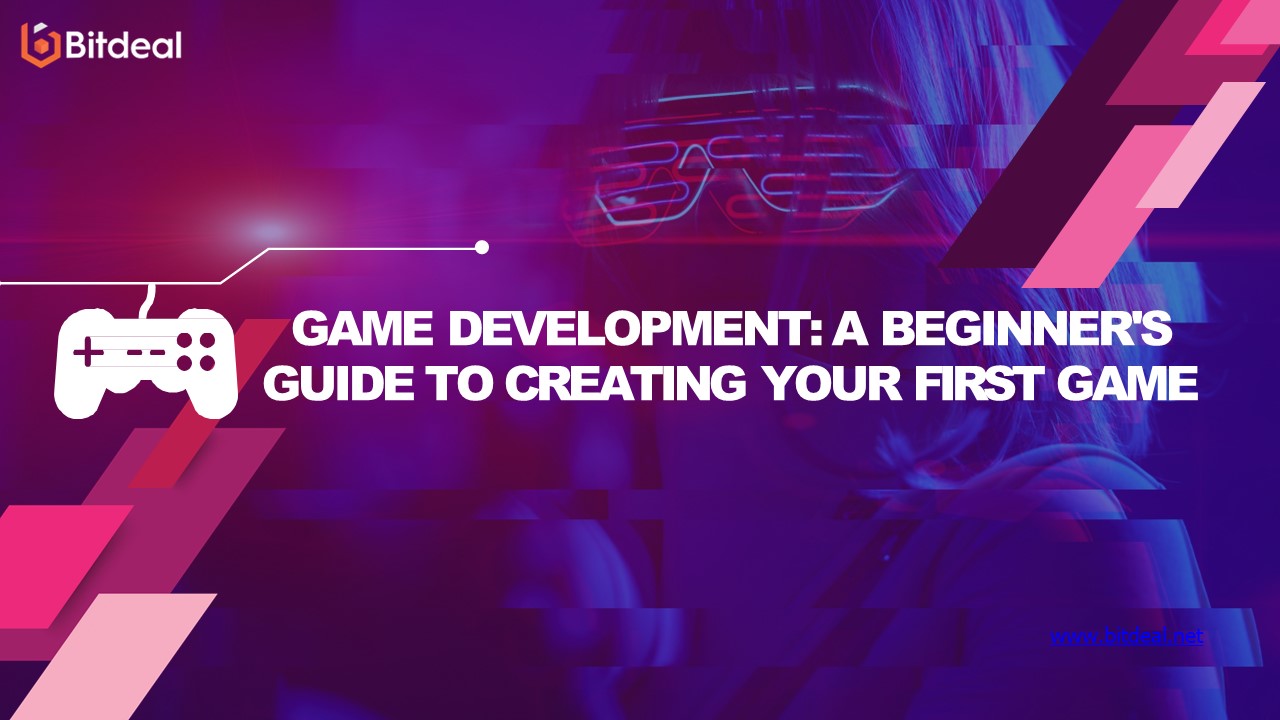Game Development a Beginner's Guide to Creating Your First Game - PowerPoint PPT Presentation
Title:
Game Development a Beginner's Guide to Creating Your First Game
Description:
Create your first game with confidence using our comprehensive beginner's guide to game development! Learn essential steps to build your own gaming platform. Tap to Build – PowerPoint PPT presentation
Number of Views:2
Title: Game Development a Beginner's Guide to Creating Your First Game
1
GAME DEVELOPMENT A BEGINNER'S GUIDE TO CREATING
YOUR FIRST GAME
www.bitdeal.net
2
Embark on an exciting and rewarding game
development journey, bringing imaginative worlds
to life. This beginner's guide equips you with
essential insights and steps to create your first
game, whether it's an epic fantasy realm,
thrilling action-adventure, or casual mobile
game. Let's dive into the exciting world of game
creation!
3
STEP 1
Define Your Game Concept Every great game
begins with a compelling concept. Take time
to brainstorm and visualize the core elements of
your game. Consider the genre, gameplay
mechanics, characters, story, and target audience.
4
STEP 2
Choose the Right Game Development Tools Selecting
the appropriate game development tools is
crucial, especially for beginners. There are
various game engines available, each offering
different features and capabilities. Unity
and Unreal Engine are popular choices for their
user- friendly interfaces and extensive community
support.
5
STEP 3
Learn the Basics of Programming Having a
fundamental understanding of programming is
essential for game development. If you are
new to coding, start with beginner-friendly
languages like C for Unity or Blueprint
scripting for Unreal Engine.
6
STEP 4
Design Captivating Game Art and Audio Visuals
and audio are vital components of game
development. Create captivating game art and
design user-friendly interfaces. If you're not
an artist, consider using royalty-free assets
from platforms like the Unity Asset Store or
Unreal Engine Marketplace.
7
STEP 5
Implement Gameplay Mechanics Once you have your
concept, programming skills, and assets ready,
it's time to implement the gameplay
mechanics. This step involves designing levels,
player interactions, AI behavior, and game rules.
Regular testing and iteration are essential to
fine-tune the gameplay and ensure a balanced and
enjoyable experience.
8
STEP 6
Test, Test, and Test! Testing is a critical phase
of game development. Thoroughly playtest your
game to identify bugs, glitches, and potential
improvements. Gather feedback from friends,
family, or a small group of beta testers
to gain valuable insights and refine your
game further.
9
STEP 7
Polish and Optimize Your Game Polishing your game
involves refining the user interface, improving
visuals, and enhancing overall performance.
Optimize your game to run smoothly on various
devices, ensuring a seamless experience for
players.
10
STEP 8
Release Your Game Congratulations! You've
reached the final stage of your game
development journey. Consider publishing your
game on popular platforms like Steam, App Store,
Google Play, or itch.io. Promote your game
through social media, gaming forums, and gaming
communities to reach your target audience.
11
Finally
- While creating a game by yourself can be
challenging, partnering with a Game Development
Company like Bitdeal can offer expert support and
streamline the process, leading to a successful
and rewarding gaming experience.
12
Contact Bitdeal
www.bitdeal.net 91 9677555651 t.me/salesbitdeal
sales_at_bitdeal.net































